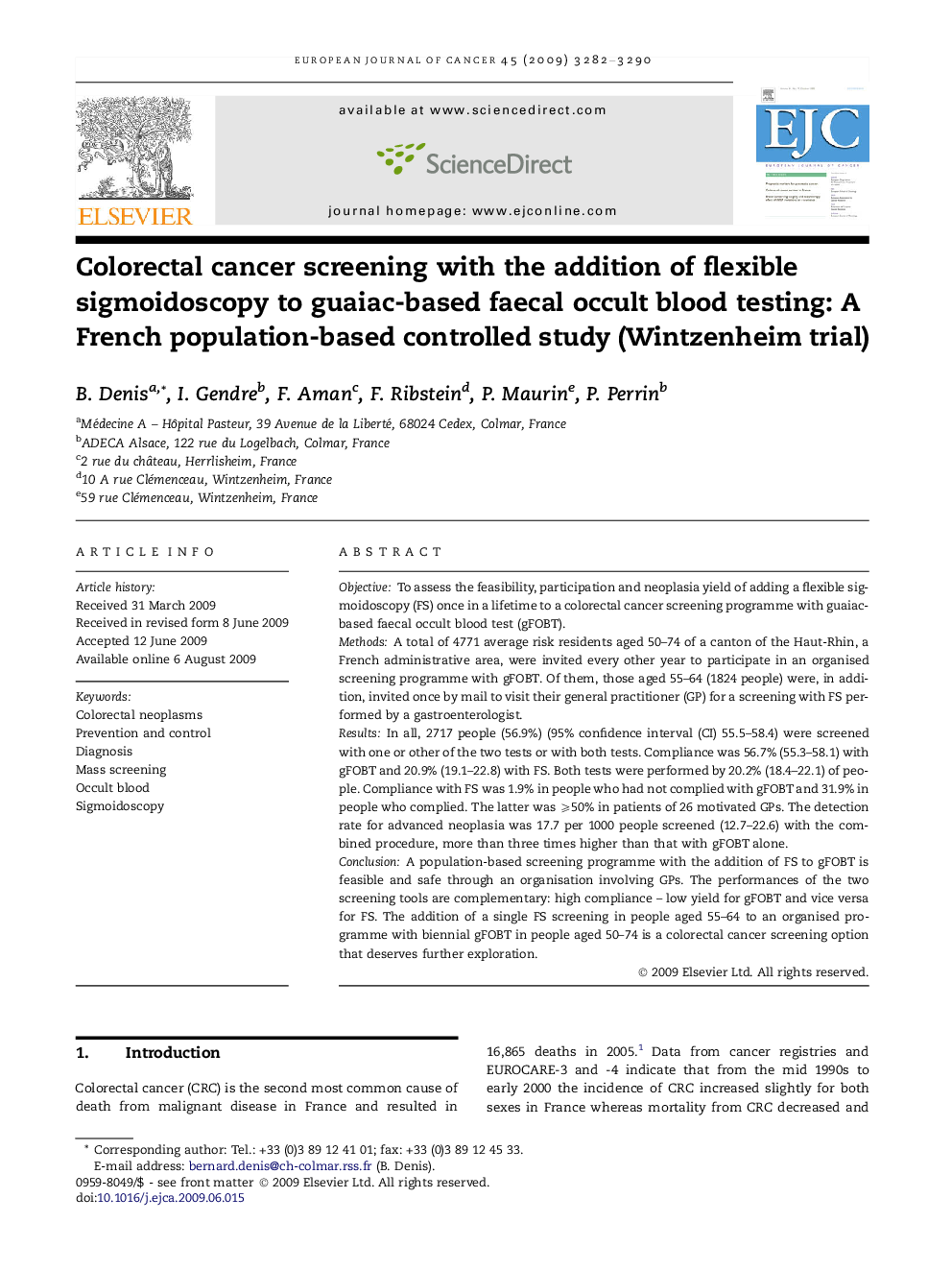| Article ID | Journal | Published Year | Pages | File Type |
|---|---|---|---|---|
| 2123442 | European Journal of Cancer | 2009 | 9 Pages |
ObjectiveTo assess the feasibility, participation and neoplasia yield of adding a flexible sigmoidoscopy (FS) once in a lifetime to a colorectal cancer screening programme with guaiac-based faecal occult blood test (gFOBT).MethodsA total of 4771 average risk residents aged 50–74 of a canton of the Haut-Rhin, a French administrative area, were invited every other year to participate in an organised screening programme with gFOBT. Of them, those aged 55–64 (1824 people) were, in addition, invited once by mail to visit their general practitioner (GP) for a screening with FS performed by a gastroenterologist.ResultsIn all, 2717 people (56.9%) (95% confidence interval (CI) 55.5–58.4) were screened with one or other of the two tests or with both tests. Compliance was 56.7% (55.3–58.1) with gFOBT and 20.9% (19.1–22.8) with FS. Both tests were performed by 20.2% (18.4–22.1) of people. Compliance with FS was 1.9% in people who had not complied with gFOBT and 31.9% in people who complied. The latter was ⩾50% in patients of 26 motivated GPs. The detection rate for advanced neoplasia was 17.7 per 1000 people screened (12.7–22.6) with the combined procedure, more than three times higher than that with gFOBT alone.ConclusionA population-based screening programme with the addition of FS to gFOBT is feasible and safe through an organisation involving GPs. The performances of the two screening tools are complementary: high compliance – low yield for gFOBT and vice versa for FS. The addition of a single FS screening in people aged 55–64 to an organised programme with biennial gFOBT in people aged 50–74 is a colorectal cancer screening option that deserves further exploration.
